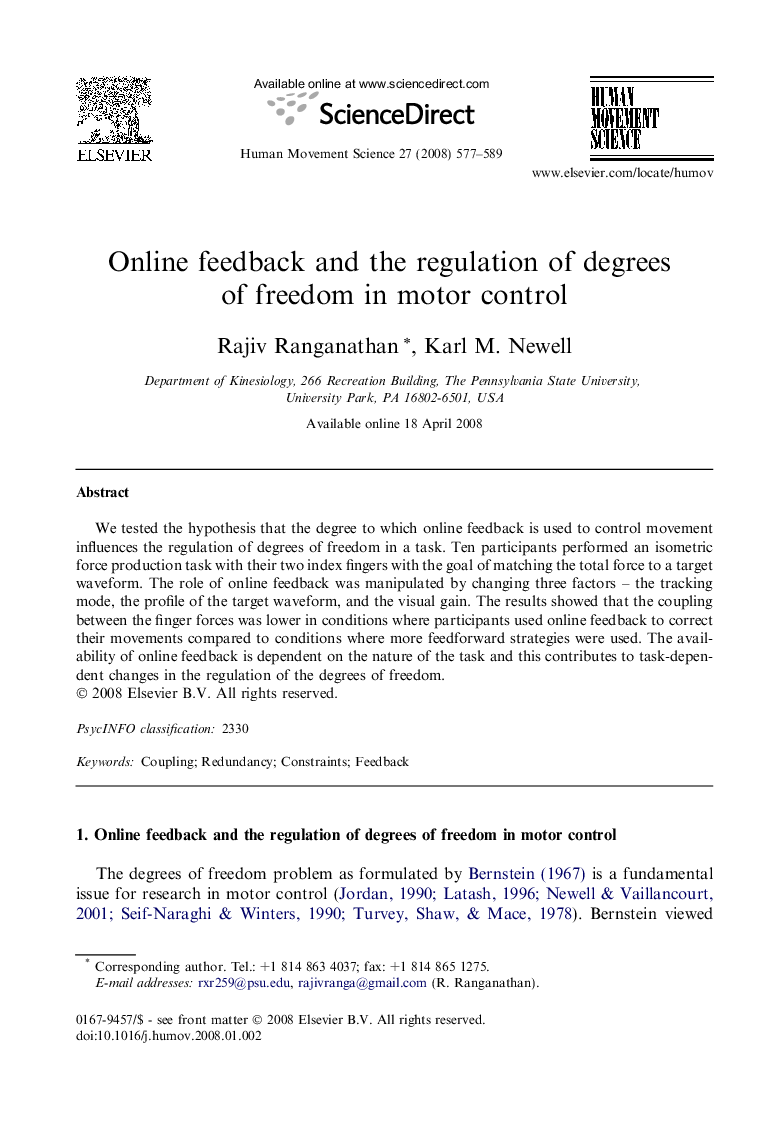| Article ID | Journal | Published Year | Pages | File Type |
|---|---|---|---|---|
| 928909 | Human Movement Science | 2008 | 13 Pages |
We tested the hypothesis that the degree to which online feedback is used to control movement influences the regulation of degrees of freedom in a task. Ten participants performed an isometric force production task with their two index fingers with the goal of matching the total force to a target waveform. The role of online feedback was manipulated by changing three factors – the tracking mode, the profile of the target waveform, and the visual gain. The results showed that the coupling between the finger forces was lower in conditions where participants used online feedback to correct their movements compared to conditions where more feedforward strategies were used. The availability of online feedback is dependent on the nature of the task and this contributes to task-dependent changes in the regulation of the degrees of freedom.
